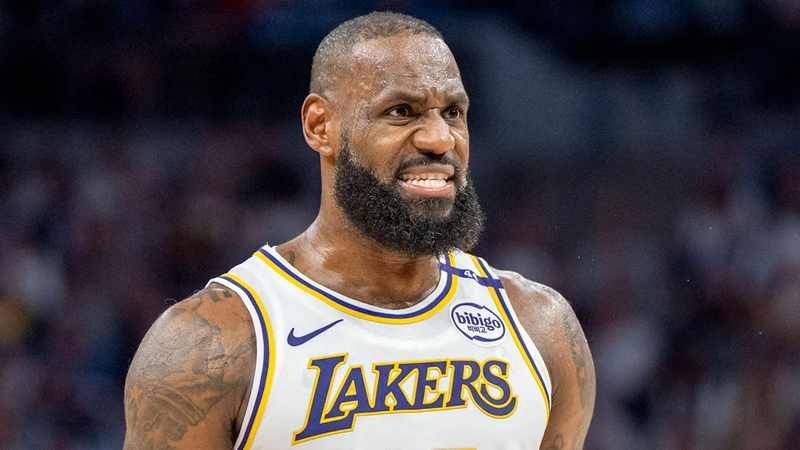
LeBron James’ Essay in China’s State Newspaper Exposes Beijing’s Growing Grip on U.S. Sports
Los Angeles Lakers star LeBron James made headlines this week not for his dominance on the court, but for his decision to pen an essay in the People’s Daily, the flagship propaganda newspaper of the Chinese Communist Party (CCP). While James thanked his Chinese fans for their hospitality, the symbolism of his words—published in a CCP-controlled outlet—raises uncomfortable questions about Beijing’s influence over American athletes, leagues, and cultural institutions.
The controversy cannot be divorced from history. In 2019, then-Houston Rockets general manager Daryl Morey tweeted “Fight for Freedom. Stand with Hong Kong” during mass protests against Beijing’s repressive security law. That seven-word message triggered an international crisis: Chinese broadcasters pulled NBA games, sponsors vanished, and the league scrambled to repair its billion-dollar market.
At the time, LeBron James publicly criticized Morey, suggesting that people who are “misinformed or not educated” should not speak on geopolitical issues. For many, it looked less like caution and more like capitulation to protect NBA revenues from China. Now, six years later, James’ essay in a CCP newspaper risks reinforcing the perception that Beijing has successfully cultivated American sports icons as instruments of soft power.
In his essay, James wrote that he was “deeply touched” by the “enthusiasm and kindness of Chinese friends” and pledged to give his all on the court as a gesture of gratitude. On the surface, these words may seem harmless—a global superstar thanking his fans. But context matters: the platform he chose is not a neutral publication. The People’s Daily is the CCP’s official voice, used to shape narratives at home and abroad. By appearing in its pages, James inadvertently strengthens Beijing’s message that China is a welcoming, benevolent partner to the world, even as it tightens domestic repression and projects power abroad.
This is the very essence of propaganda: leveraging popular figures to launder the image of an authoritarian regime.
The NBA has long been America’s most globalized sports league, and China is its largest overseas market. Millions of fans, lucrative broadcast deals, and sponsorships have tied the league to Beijing in ways that are difficult to untangle. Yet this dependency comes at a cost: it leaves the NBA vulnerable to political pressure.
When a player or executive voices criticism of China’s human rights record, the consequences are immediate and severe. Games are pulled from airwaves, partnerships are suspended, and careers can be threatened. This creates a chilling effect where silence—or in James’ case, overt praise—becomes the safest option.
The risk is clear: China’s influence is no longer limited to trade and technology—it is penetrating American culture, sports, and even the values of free expression.
Some may argue that James’ essay is just sports diplomacy. But when the most famous basketball player of his generation chooses to appear in a CCP propaganda organ, Americans should take notice. It signals how Beijing uses access to its massive market to bend foreign voices toward compliance, or even endorsement.
For the United States, this is more than a cultural issue. Sports heroes hold sway over public opinion, particularly among younger generations. When those heroes echo Beijing’s talking points—even unintentionally—it normalizes China’s narrative and distracts from its record of censorship, human rights abuses, and global aggression.
LeBron James is just one example of a much larger trend. Chinese influence campaigns target Hollywood, universities, technology firms, and now American sports leagues. The CCP understands that culture shapes perception, and perception shapes power. By cultivating figures like James, Beijing gains legitimacy in the eyes of global audiences and undermines America’s ability to project its own values of freedom and democracy.
The danger lies not only in what is said, but in what is not said. Silence on issues like Hong Kong, Xinjiang, or Tibet is itself a victory for Beijing. Every time a U.S. cultural icon praises China without addressing its darker realities, it helps sanitize the regime’s image.
LeBron James’ essay in the People’s Daily may have been intended as a gesture of gratitude, but it should serve as a wake-up call. The CCP’s reach is not confined to politics or economics—it extends into the very heart of American popular culture.
Americans must remain vigilant. When sports stars and institutions allow themselves to become tools of foreign propaganda, the cost is not only credibility but also national security. The question is no longer whether Beijing is trying to shape American culture—it is how much we are willing to let it succeed.